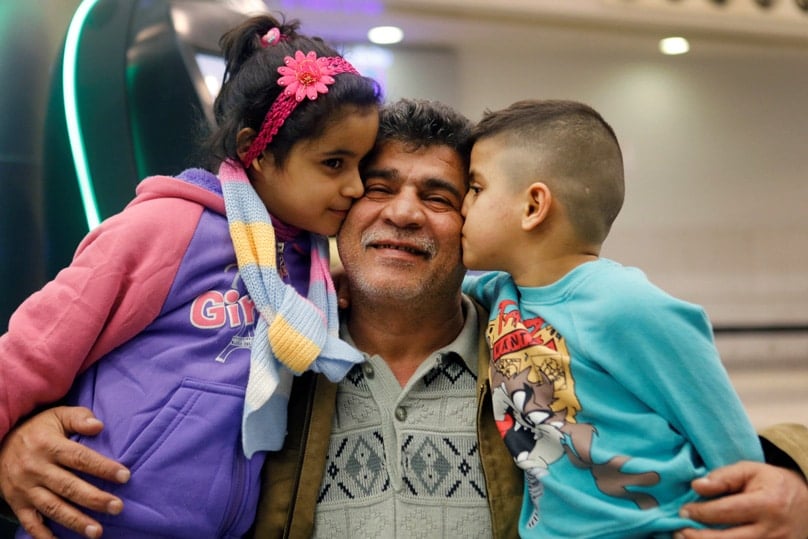
Here in Australia, our collective problems are, as a rule, not so bad as we imagine them to be. It is true, of course, that for some people life’s problems can be crushing. Their problems may include diagnosis with a terminal or a mental illness, family breakdown, loss of a child or a spouse, addictions, the loss of employment – and so on. And it is true, these sufferings are terrible. But whatever our social and political problems may be, we still live – materially, at least – in a fortunate country.
For others around the world, the general picture is much darker. The Christians of the Middle East and the suffering peoples of whom they are a part are one example of whole populations whose endless sufferings make Australia’s problems, whatever they may be, seem like an anthill in comparison.
One sad dimension to this picture is the relative indifference of Australians, apparently, to the problems of people outside our national borders. In some ways, it seems, we react by trying to put the people we regard as problems outside the scope of our moral vision by relocating them to other places and countries. Out of sight, we imagine, therefore out of mind. Let someone else solve the problem. True, we periodically get drawn up into the sentiment of the moment when a worthy cause comes along, especially when the media jump on board but (also like the media) all too soon we forget.
If anything, Australians suffer from affluence and its effects. And it must be acknowledged that sometimes it appears Australian Catholics suffer from this deficiency of character almost (or just) as much as our contemporary surrounding society, despite the fact that it is precisely our faith which is meant to make us different – both internally and in our actions and attitudes towards others.
In relation to the Christians of the Middle East and the suffering populations of Iraq, Syria and Lebanon, for example, could we Australian Catholics conduct an examination of our collective consciences that would result in a morally satisfactory answer? It seems difficult to imagine that the answer to this question would be positive. Aside from one or two perfunctory lines muttered at the Prayers of the Faithful during occasional masses in the last few years, what have we, in fact, done?
If we are truly Christians we must believe in the power of prayer – real prayer. Yet where have the vigils been held? Where have pastors exhorted their flocks to gather in prayer and engage in financial and material support for those being enslaved, violated and butchered for their faith in the Middle East? Where have families drawn together to pray, inviting their Catholic and other Christian friends to join them in beseeching heaven for those whose sufferings make our general problems seem insignificant?
Here and there, true, there have been isolated instances, undoubtedly. But acting collectively as a Church and in a unified way, what have we really done other than watch the nightly news, shake our heads, mutter something about the poor so-and-sos and changed the channel. At Lent, we have a chance to deny ourselves and to put others first. We have a chance to make this Lent concrete, a time of repentance, intercession – and conversion of our lives and hearts.
If you want to give alms for the sake of persecuted Christians, one organisation working in some of the world’s most challenging regions is Aid to the Church in Need. Hyperlinks added by the acting online editor.
